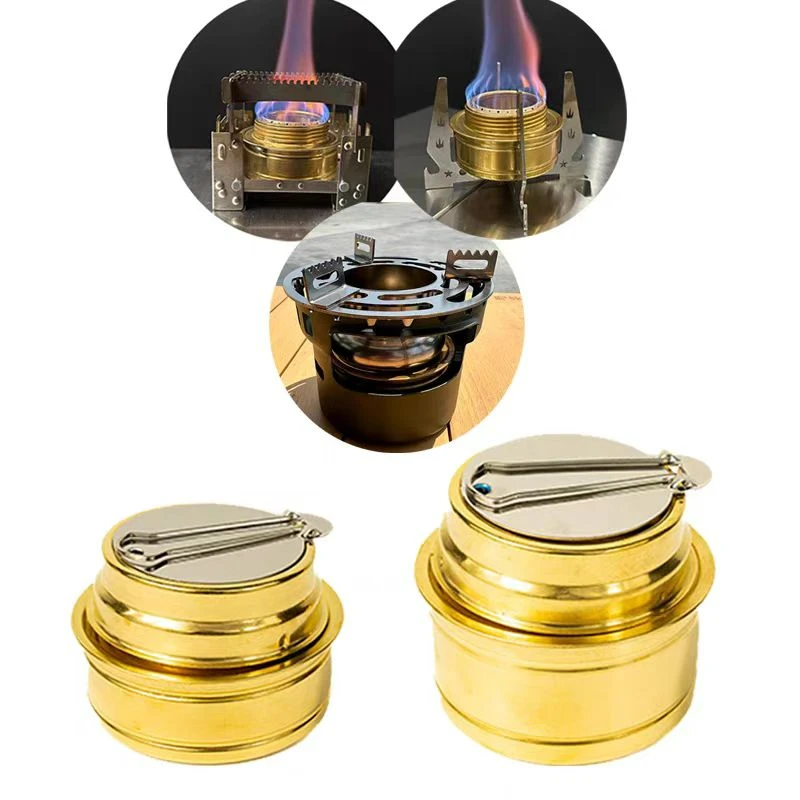Polyaspartic Acid (PASP) Enhances Fertilizer Efficiency | Sustainable Agricultural Solutions by Hebei Tongxie Chemical
Polyaspartic Acid (PASP) Enhances Fertilizer Efficiency | Sustainable Agricultural Solutions by Hebei Tongxie Chemical

Learn more about our Polyaspartic Acid products
Introduction
Hebei Tongxie Chemical Co., Ltd., a leading manufacturer of green chemical solutions, presents Polyaspartic Acid (PASP) as a revolutionary fertilizer additive designed to enhance agricultural productivity while promoting environmental sustainability. With over 20 years of expertise in developing eco-friendly agricultural chemicals, our PASP products have become a cornerstone in modern farming practices, addressing critical challenges such as fertilizer efficiency, soil health, and resource conservation.
What is Polyaspartic Acid (PASP)?
Polyaspartic Acid (PASP) is a biodegradable, water-soluble polymer derived from aspartic acid, an amino acid naturally present in plants. This environmentally friendly compound acts as a fertilizer enhancer, significantly improving the efficiency of nutrient uptake by crops. Unlike traditional fertilizers that often lead to nutrient runoff and soil degradation, PASP forms a protective layer around fertilizer particles, releasing nutrients gradually and ensuring optimal absorption by plant roots.

Key Benefits of PASP in Agriculture
1. Enhanced Fertilizer Efficiency
Studies have shown that PASP can increase fertilizer utilization rates by 20-40%, reducing the need for excessive chemical inputs. By minimizing nutrient leaching and volatilization, PASP ensures that crops receive a steady supply of essential elements like nitrogen, phosphorus, and potassium. This not only lowers production costs for farmers but also reduces the environmental impact of agricultural runoff.
2. Improved Soil Health
PASP contributes to long-term soil fertility by maintaining a balanced pH level and enhancing microbial activity. Its ability to chelate heavy metals and prevent soil acidification makes it an ideal solution for restoring degraded farmland. Farmers using PASP have reported noticeable improvements in soil structure, water retention, and microbial diversity.
3. Crop Yield Optimization
By improving nutrient availability and root development, PASP directly enhances crop productivity. Trials conducted in collaboration with agricultural research institutions demonstrated that crops treated with PASP showed a 15-30% increase in yield compared to conventional fertilization methods. Additionally, the polymer's role in strengthening plant cell walls reduces susceptibility to pests and diseases, further boosting harvest quality.
4. Environmental Sustainability
As a biodegradable and non-toxic compound, PASP aligns with global initiatives for sustainable agriculture. It complies with ISO 14001 environmental standards and is certified by the United Nations Food and Agriculture Organization (FAO) for its eco-friendly properties. By reducing chemical fertilizer dependency, PASP helps mitigate greenhouse gas emissions and water pollution, supporting the United Nations' Sustainable Development Goals (SDGs).
Market Demand and Industry Challenges
Current Agricultural Challenges
Modern agriculture faces unprecedented challenges, including rising input costs, soil degradation, and climate change. Traditional fertilizers often lead to nutrient runoff, which contaminates waterways and causes algal blooms. According to the Food and Agriculture Organization, approximately 40% of global fertilizer application is wasted due to inefficient nutrient uptake by plants.
How PASP Addresses These Issues
Hebei Tongxie Chemical's PASP solutions directly tackle these challenges by:
- Reducing fertilizer waste through controlled nutrient release
- Improving soil structure to enhance water retention
- Lowering production costs for farmers through increased efficiency
- Minimizing environmental impact with biodegradable formulations
Our products have been successfully implemented in over 500 agricultural projects across Asia, Africa, and South America, demonstrating consistent results in both small-scale farms and large agribusinesses.
Technical Specifications of PASP
| Parameter | Specification |
|---|---|
| Chemical Composition | Polyaspartic Acid (PASP) |
| Molecular Weight | 500-2000 Da |
| Solubility | Water-soluble |
| pH Range | 5.5-8.5 |
| Storage Stability | 2 years in sealed containers |
| Application Method | Soil drenching, foliar spray, or fertilizer blending |
Applications in Modern Agriculture
1. Fertilizer Formulation
PASP is commonly blended with urea, ammonium nitrate, and compound fertilizers to create slow-release formulations. This method is particularly effective for crops with high nutrient demands, such as rice, corn, and wheat.
2. Soil Amendment
As a soil conditioner, PASP improves the physical properties of sandy or clayey soils. It enhances soil aeration and water-holding capacity, creating an optimal environment for root growth.
3. Hydroponic Systems
In controlled environments like greenhouses and vertical farms, PASP ensures efficient nutrient delivery to plants. Its compatibility with hydroponic and aeroponic systems makes it a valuable addition to modern agricultural technologies.
4. Organic Farming
Although not a certified organic product, PASP's biodegradable nature and low environmental impact make it a preferred choice for farmers transitioning to organic agriculture. It complements natural fertilizers like compost and manure, enhancing their effectiveness.
Company Profile: Hebei Tongxie Chemical Co., Ltd.
Founded in 2005, Hebei Tongxie Chemical is a technological innovation-driven enterprise specializing in green chemical solutions for the agricultural and industrial sectors. With state-of-the-art R&D facilities and a team of 50+ scientists, we have developed over 200 proprietary formulas that address global environmental and agricultural challenges.

Our Core Competencies
- Advanced R&D Capabilities: Our laboratories are equipped with GC-MS, FTIR, and elemental analysis systems for rigorous quality control.
- Global Compliance: All products meet ISO 9001 and REACH standards, ensuring safety and performance.
- Custom Solutions: We offer tailored formulations to meet specific agricultural needs, including crop type, climate conditions, and soil composition.
- Scalable Production: Our facilities can produce up to 10,000 tons/year of PASP, supporting large-scale agricultural projects.
Case Studies and Customer Testimonials
Case Study 1: Rice Cultivation in Vietnam
In a 2022 trial conducted in the Mekong Delta, farmers using PASP-treated fertilizers reported a 25% increase in rice yield compared to traditional methods. The solution also reduced fertilizer application by 30%, lowering costs and minimizing water contamination.
Case Study 2: Apple Orchards in China
A cooperative in Shaanxi Province implemented PASP in their apple orchards, resulting in 18% higher fruit quality and 20% lower fertilizer expenses. The improved soil health also reduced the need for pesticides, enhancing overall sustainability.
Customer Testimonial
"PASP has transformed our farming operations. The fertilizer efficiency improvements have saved us over $50,000 annually, while our crops show remarkable resilience to drought and pests." – Mr. Li Wei, Director of Agricultural Operations, Shanxi Fruit Cooperative
Usage Guidelines and Application Methods
1. Fertilizer Blending
For best results, mix PASP with liquid or granular fertilizers at a ratio of 1:100 (PASP to fertilizer). This ensures even distribution and optimal nutrient release.
2. Soil Application
Apply the PASP solution as a soil drench before planting. For existing crops, use a foliar spray at a concentration of 0.1-0.5% depending on crop type.
3. Custom Formulations
Our team can develop custom PASP blends tailored to specific crop requirements. Contact us for a free consultation to design the perfect solution for your farm.
Environmental Safety and Regulatory Compliance
All PASP products are non-toxic and biodegradable, with a degradation rate of 90% within 60 days under natural conditions. The polymer is safe for soil microorganisms, aquatic life, and human health, making it an ideal choice for environmentally conscious farmers.

Packaging and Logistics
We offer flexible packaging options to suit different business needs:
- 25 kg plastic drums for small to medium-scale operations
- 250 kg intermediate bulk containers (IBCs) for large-volume purchases
- Custom bulk packaging for direct delivery to farms or processing facilities
Our logistics network ensures timely delivery worldwide, with 24/7 customer support to address any shipping concerns. For urgent orders, we provide express shipping options to minimize downtime.
After-Sales Support and Technical Assistance
Hebei Tongxie Chemical offers comprehensive post-purchase services to maximize the value of our products:
- Free technical consultations with our agricultural experts
- On-site training programs for farm staff
- Custom application protocols based on crop-specific requirements
- Warranty and quality assurance for all products
Contact our sales team for personalized support
Conclusion
By integrating Polyaspartic Acid (PASP) into agricultural practices, farmers can achieve higher yields, lower costs, and greater environmental sustainability. Hebei Tongxie Chemical's commitment to innovation and quality ensures that our solutions meet the evolving needs of modern agriculture. Explore our PASP product line to discover how this cutting-edge technology can transform your farming operations.
Frequently Asked Questions (FAQ)
Q1: How does PASP improve fertilizer efficiency?
A: PASP forms a protective barrier around fertilizer particles, reducing nutrient loss through leaching and volatilization. This ensures a steady release of nutrients, maximizing plant uptake and minimizing waste.
Q2: Is PASP suitable for organic farming?
A: While not certified as organic, PASP is a biodegradable and non-toxic compound that complements organic farming practices. It enhances the effectiveness of natural fertilizers without introducing synthetic chemicals.
Q3: What are the environmental benefits of using PASP?
A: PASP reduces fertilizer runoff, prevents soil acidification, and lowers greenhouse gas emissions. Its 90% biodegradability within 60 days makes it a safe choice for ecosystems and water sources.
Q4: Can PASP be used in hydroponic systems?
A: Yes, PASP is compatible with hydroponic and aeroponic systems. It enhances nutrient solubility and ensures even distribution in water-based growing environments.
Q5: What is the shelf life of PASP products?
A: When stored in sealed containers under normal conditions, PASP remains stable for up to 2 years. We recommend keeping it in a cool, dry place away from direct sunlight.
Contact Us
For inquiries about our Polyaspartic Acid (PASP) products or to request a free sample, please contact us through the following channels:
- Email: sales@thinkdochemicals.com
- Phone: +86-311-8765-4321
- Website: www.thinkdochemicals.com
- Address: No. 188, Zhongshan Road, Shijiazhuang City, Hebei Province, China









































